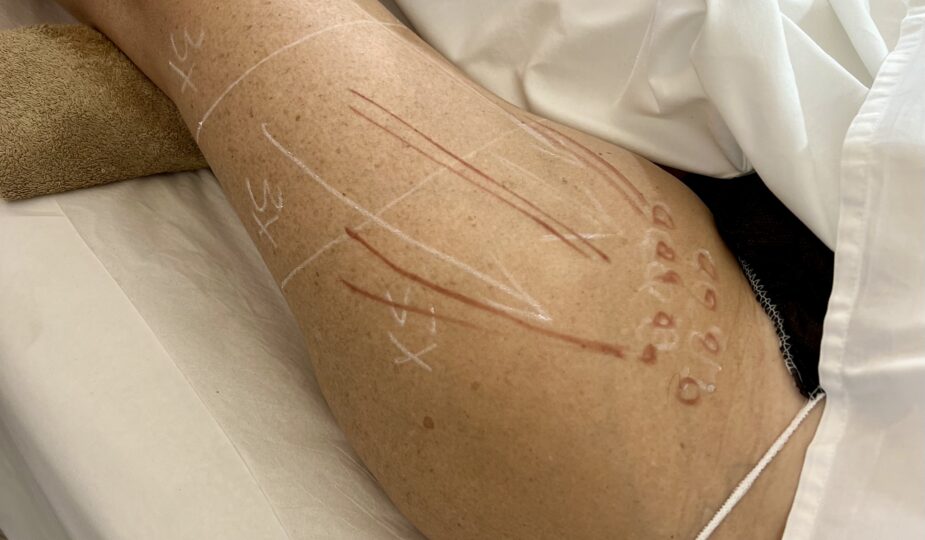When my crow’s feet started becoming more prominent about 5 years ago, I chose to try Botox. Since then I have been researching more, and want to share with you some of the scientific observations, so you can make a decision for yourself before your next Botox fix.
There’s a lot of chatter about Botox in wellness right now, and I look at everything from a lymphatic drainage point of view now. Let me share with you what I find…
Botox (Botulinum toxin) works by disrupting communication between nerves and muscle cells, preventing contraction, aka paralysis. It slows lymphatic flow but it doesn’t “block” it. We’re talking Botox, now, not skin booster or fillers.
When Botox does wear off, it’s our lymphatic system that’s responsible for initiating that metabolic process.
Lymphatic capillaries live just 3 hair widths apart from one another…
They cast a protective net across the skin to pull foreign/ harmful substances out of the tissue and deliver them to our detox organs to be eliminated.
The only places lymph doesn’t flow are in our hair and fingernails. It’s everywhere.
The lymphatic system is the very reason that Botox can travel to the heart, lungs, intestines, bladder, and beyond. Research has found that botulinum neurotoxin can (and does) migrate into the central nervous system after it’s injected into the skin, but we don’t know what that means yet.
One small study showed that damaged nerves can repair themselves with SHORT-TERM use of Botox, but the adverse effects for long-term use are still unclear and new reports of adverse reactions are on the rise. Data has shown that only a tenth of incidences are reported.
Right now, advocacy groups are petitioning for an update to the 2009 Black Box Warning label because it’s not up-to-date on the clinical findings and deserves a more complete warning for consumers.
One thing I noticed while doing research for this post was just how difficult it is to find accurate and/or unbiased information on either side of this “To tox or not to tox” argument. I think the answer can be found somewhere in the middle, and only time will tell what the real consequences are. Further study is needed. Nothing new there.
Let’s face it, extremely adverse reactions like death are pretty rare considering the astronomical amount being administered each year. These reactions usually come from off-label versions of the toxin and are injected by people who aren’t qualified to do so. One of the easiest ways to get Botox injected as safely as possible is to go to a reputable place and see only board-certified plastic surgeons.
I’m still pro-Botox, and I do carefully choose who does it for me. After reading this, what is your choice?










